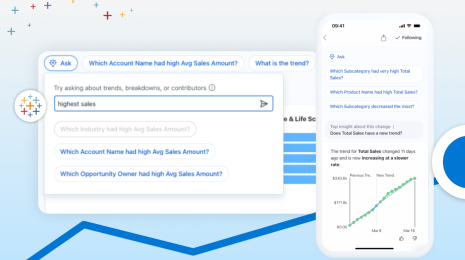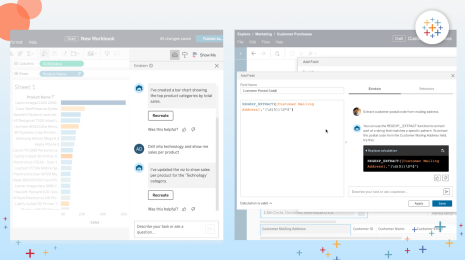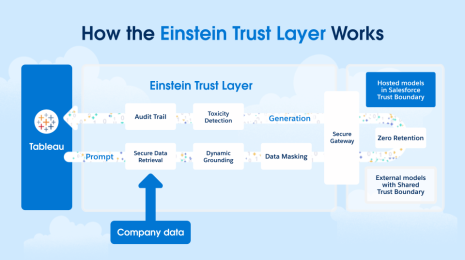What is Einstein Copilot for Tableau?
Einstein Copilot for Tableau, now available for Tableau customers to try in beta, brings the power of AI to data analytics, reducing the barrier to entry and working alongside the analyst—from data preparation to visualization. Whether you're an experienced data analyst or just starting your journey in data exploration, Einstein Copilot for Tableau becomes your trusted companion, empowering you to unlock insights and make informed decisions with confidence.
Einstein Copilot for Tableau integrates into the Tableau environment, enhancing your data analysis workflow without disruptive changes. It acts as your intelligent copilot, guiding you through the process of creating in Tableau, all while ensuring accuracy, providing best practices and trust built on top of the Einstein Trust Layer. With Einstein Copilot for Tableau by your side, you can confidently explore your data, uncover trends and patterns, and communicate your findings with clarity and impact.
Einstein Copilot for Tableau offers a range of features that enhance the data analytics experience and empower anyone to unlock the full potential of their data. Look for these features in the coming release, and even more as we continue to build.
Faster insights with recommended questions
When you are getting started in analytics—whether for work, learning, or just for fun—a blank canvas can be intimidating. Where do you even begin? Using Einstein to suggest questions you can ask of a specific datasource lightens that lift so you can quickly move from connecting to data to finding insights.
Einstein Copilot for Tableau does a quick index across your connected datasource to create a summary context of the datasource. This summary is used to generate a few questions the dataset can answer. For example, using a dataset like Tableau’s Superstore practice dataset, Einstein Copilot for Tableau suggests “Are there any patterns over time for sales across product categories?” In one click a line chart is created. Since this is all happening in the authoring experience, users familiar with Tableau’s drag-and-drop interface can adjust anything displayed before saving and moving on to the next question. Combining analyzing data with learning by doing.
With recommended questions, anyone can quickly uplevel their analytics skills.
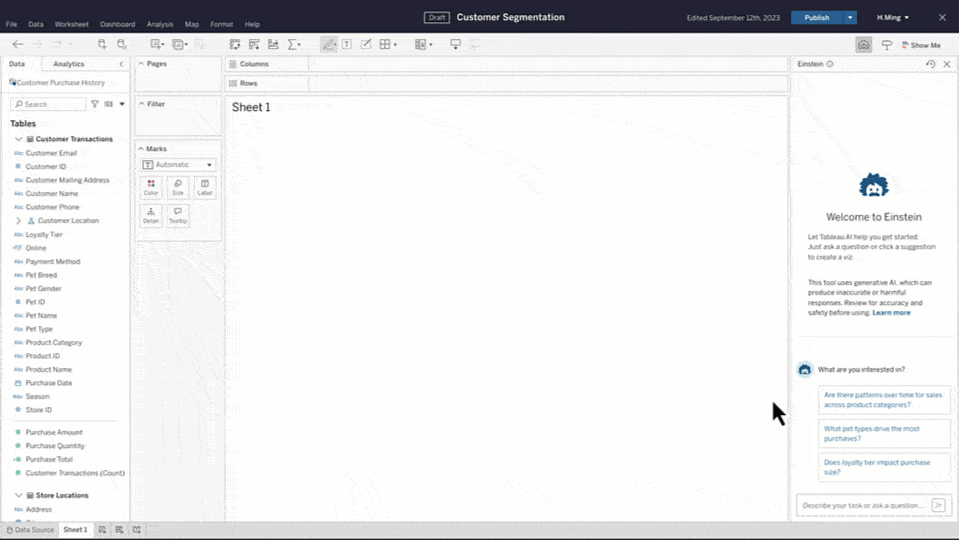
Conversational data exploration
It’s common for the answer to your first question to provoke follow up questions that enrich your understanding of the data. Einstein Copilot for Tableau enables you to iterate and refine your data exploration. You can search for an additional insight without losing the context of your previous question. As you learn, you’ll see how Tableau organizes measures and dimensions, familiarizing yourself with where to drag-and-drop to get the exact viz that you want. At any point you can save your work and create a new sheet to answer a new question.
Einstein Copilot for Tableau can handle filtering, changing the viz type, and even misspellings. Yes, Einstein uses fuzzy logic to catch misspelled words, and semantic search for synonyms. So if you start with product category, your next question could be to “filter on technology and show sales by product”. Einstein Copilot for Tableau places the filter and swaps out the dimension. Watching this in action can help to teach more people across your organization how to self-serve with data exploration.
Einstein Copilot for Tableau can augment your analytics experience whether you are starting with a blank canvas, or editing an existing dashboard.
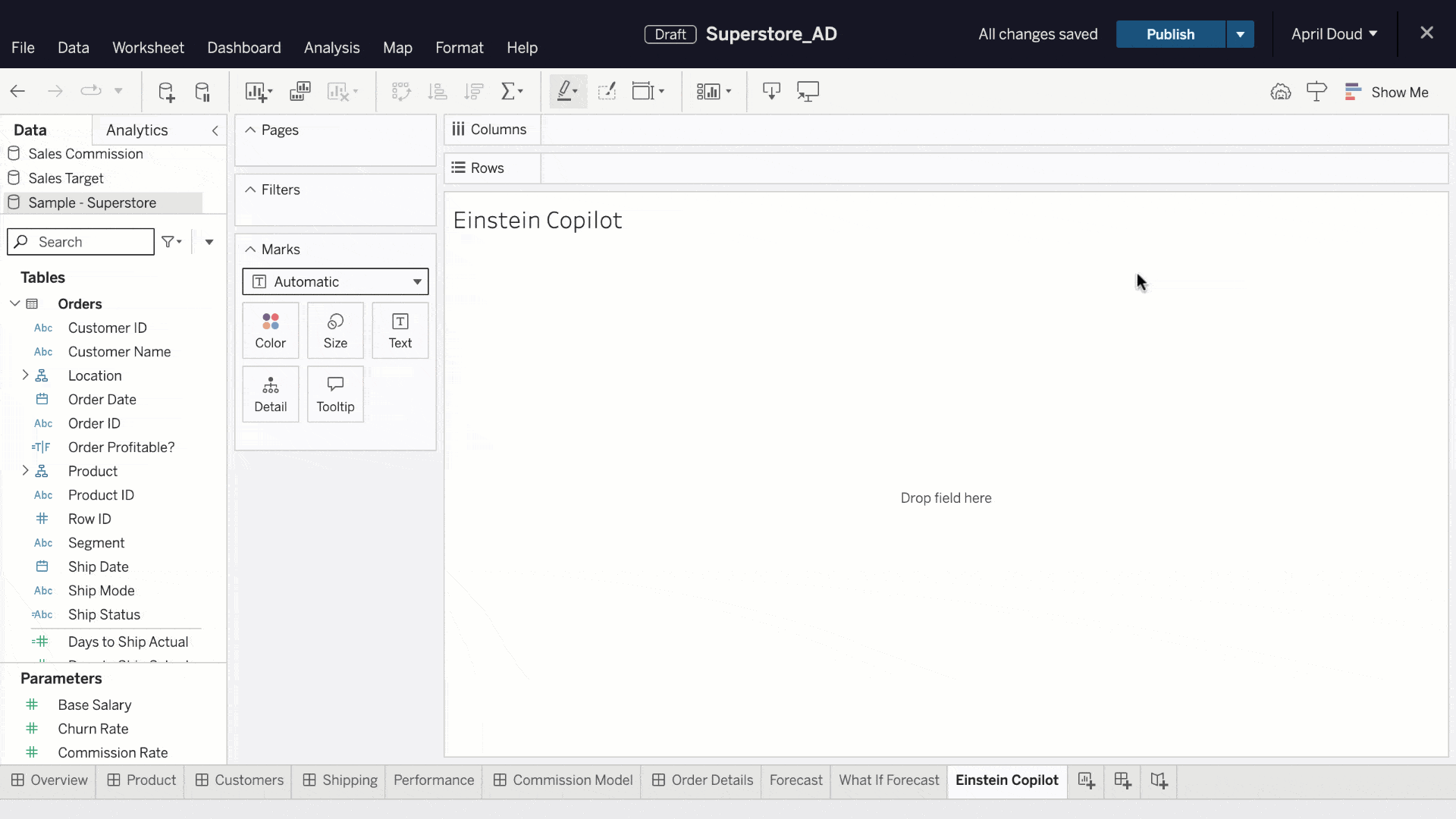
Guided calculation creation
Learning to write calculations in a new language can be complex. Einstein Copilot for Tableau guides you in creating calculations through natural language prompts. So whether you are creating a calculation for a new business KPI, or to keep track of your favorite sports team, Einstein is by your side with a calculation and an explanation, in Tableau Prep and when authoring visualizations.
Asking Einstein to “create an indicator for songs that are a remix” on my playlist data returns a calculation searching the Track Name field without explicitly asking for that field. Einstein knows from the initial indexing the work ‘remix’ is commonly found in the Track Name field. The calculation also comes with a helpful explanation so you know how the calculation will behave before accepting it. Einstein Copilot for Tableau understands aggregations, string calculations, table calculations, LODs, it can even write regex!
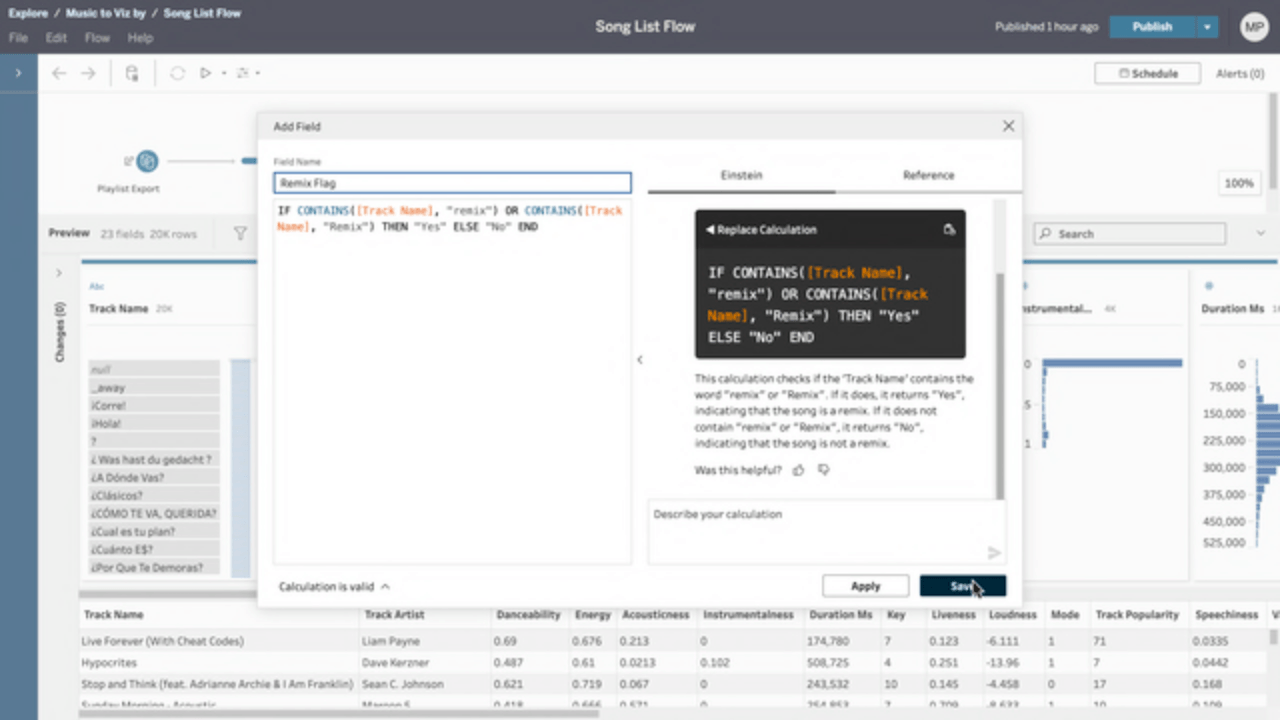
Try Einstein Copilot for Tableau, now in beta
Start your journey to data-driven success today. Embrace the future of data analysis with Einstein Copilot for Tableau and unlock the full potential of your and your data. Sign up for the Einstein Copilot for Tableau beta program, and see how it uses trusted AI to become your assistant and empower you to gain deep insights from data.
Historias relacionadas
Suscribirse a nuestro blog
Obtenga las últimas actualizaciones de Tableau en su bandeja de entrada.




